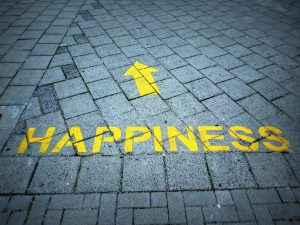
In This Post
- What your internal monologue is and why it’s important
- What are your inner beliefs and what are the dangers of negative self-labels
- How to understand your internal monologue and use it to help you achieve your goals
Your internal monologue is your inner voice, beliefs and internal experience. It is the way you speak to yourself, that voice in your head, and your judgements. Your thoughts and beliefs that you hold about yourself, your reality and the world around you. It is the constant narration that you hear throughout your day. Maybe it’s the voice that tells you things like ‘I always get caught behind red lights on the drive to work’. Or, the voice that says ‘I’m not good at maths tests’.
Our inner monologues are often very critical, but they don’t have to be something that brings you down. They are important and highly useful for understanding more about yourself, and your self-esteem. Unsurprisingly, they can be a phenomenal source of inspiration, growth and guidance. Your self development journey should start with your internal monologue, after all, it could be argued that it is the single most influential factor in your life. Mindset truly can be everything.
Why Is My Inner Monologue Important?
Our internal monologue is important because it is the basis of our entire lives. Our lives are complex and there are many factors that we don’t have control over. However, a considerable extent of our experience can be summarised by the following formula.
Beliefs → Thoughts → Feelings → Behaviours → Outcomes
With this in mind, you can see how our outcomes, successes and failures are all impacted by our actions (seems sensible enough!) What motivates and controls our behaviours are often our feelings, desires and motivations, all of which originate from our thoughts and values, these of course stem from our beliefs. Outcomes can be anything in life, from our health, our success at work, our relationships or our well-being.
If you choose to see the world through this model, you will gain a lot more power and control over your life. Of course, we should acknowledge that there are things you cannot control. But, you can control your mindset and beliefs relating to them. This in turn will help you navigate difficult situations.

Where Do My Beliefs Come From?
Our beliefs in life are formed very early on and are influenced by our childhood experiences and environment. You may feel that you are naturally more optimistic or pessimistic. That you naturally are a sceptic and don’t like to hold out on positive hopes. But, this is something that you should rethink. We are not naturally one or the other, which means we can change and learn to be more optimistic (hint: this is much more beneficial!).
Being optimistic and avoiding negative self-labels in life leads to better outcomes. This has been studied extensively in areas like health and sports, but can be applied to all life areas. If you choose to hold more optimistic beliefs, especially when facing adversity, you are more likely to act in ways that will inspire positive action. This leads to a higher chance of a positive outcome.
What Are the Dangers of Negative Self-Labels?
Negative self-labels are one of the most detrimental things you can hold as you go through life. We form a key narrative for our lives based on our early experiences, and you may hold these negative beliefs for your whole life if you do not identify them and actively work on redirecting them. They may have at one time in your life served a purpose, such as keeping you from experiencing stress or harm, or even held some truth, but that does not mean that they will continue to do so.
For example, if you hold the belief that you are a shy, awkward person, you will avoid situations where you have the opportunity to exhibit the opposite type of behaviour – avoiding social gatherings or public speaking opportunities. This negative belief about yourself prevents you from finding evidence of the opposite, confident, social behaviour, and thus you continue to keep acting in a way that supports your negative self-label. If you believe something, regardless of what it is, you will find ways to find supporting evidence of it.
Self-labels can also be positive, and if you have these, hold onto them! Beliefs like ‘I was always a smart student’ are useful, as they encourage you to continue to exhibit the same positive and useful behaviour, e.g., being studious and hard-working in academic settings. Building up the most positive view of yourself, free from negative self-labels is key to developing good self-esteem and therefore encouraging useful, productive behaviour that will help lead you to a fulfilled life.

Understanding Your Own Beliefs
Once you can understand that your mindset has a huge impact on your behaviour and outcomes, it is easier to feel competent and confident when going through life, especially during challenging times. Identifying and understanding your own self-labels and internal monologue is therefore really helpful. Identifying patterns in your thinking will help you to understand the state of your internal monologue and can help direct you towards making it as positive as possible.
As you go about your day notice what your internal monologue is saying: do you always call yourself out when you make small mistakes – e.g. hearing ‘I am so stupid’, even for harmless little mistakes? How do you explain negative outcomes in your life – is it ‘I am never good enough’ or is it perhaps a more accurate ‘in this one scenario, something went wrong, but it’s okay, it will be different next time’? What beliefs do you have about yourself? How accurate are these, and if they are accurate, how useful is it that you hold this belief and give it your mental energy?
Negative Self-Labels Are Beliefs That Do Not Serve You
For beliefs that do not serve you, consider finding ways to redirect that belief, or create scenarios for yourself to grow, learn and develop in that area to actively challenge the validity of that belief. For example, if you believe yourself to be a lazy, unfit, sedentary person, consider finding ways to commit to becoming more active, energetic and motivated to challenge that belief.
Actively seeking out your negative self-labels and finding ways to change them around is absolutely crucial for becoming your most enlightened, successful and happy self. Remember, who you think you are is often who you will become – if you have positive and optimistic self-beliefs, you are much more likely to create a reality that reflects just that. The power is in your hands!
Of course, there is no point only changing your beliefs, you will need to find concrete evidence to support your new positive self-labels, but that is the goal anyway: to have positive beliefs, thoughts, behaviour and outcomes.

Your Internal Monologue is Often Subconscious
Something else to consider is that a lot of our internal monologue is subconscious, subtle and goes unnoticed. Calling yourself out when you recognise a negative belief is crucial, but don’t worry if you have a lot of negative, initial, automatic responses. What is key is that you challenge it when you see it.
It is hard to control the automatic, unconscious thoughts that arise after years of believing them, so don’t beat yourself up about having a bit of a negative voice, just keep working on recognising that it is there, challenging the validity and usefulness of what it is saying, and keep it moving.
Having self-compassion and mindfulness of your internal monologue, beliefs and feelings is so important. There’s no point being upset that you don’t think positive thoughts 24/7 – that in itself is a pretty negative mindset to have! Being gentle and compassionate with yourself is important for your well-being and self-development journey. Life is difficult and it can be hard to stay positive, just keep doing your best.
Reframing your beliefs about yourself, your environment, life and world is key and addressing your inner self-labels, monologue and world-view is an important step on your self-development journey. If you think you are a lucky, good, hard-working person, for whom things go right a lot of the time, you probably will be!
Practising positive visualisation, gratitude and uplifting self-talk are things that will help you work on your internal monologue. Remember that this is a slow game, but the person you will spend the most time with over your life is yourself, so being good to yourself and working to create a positive self-view is well worth the effort. You’ve got this!
To Put it Minimally
- Your internal monologue is your internal world, thoughts, and voice
- Your inner thoughts shape your beliefs, and these can negatively impact your life, or they can help you achieve happiness and success
- Learning to question your inner thoughts will help shape your feelings, and is likely to create more positive behaviour and outcomes
- Your internal monologue and beliefs are very core elements of your being, and making changes in this area is difficult, but worthwhile
Recommended Reading
If you enjoyed this post and would like to dive deeper into the topic, use our Amazon affiliate links below to get a copy of the books used to help make this post.
Learned Optimism – Martin Seligman
Emotional agility – Susan David
The Expectation Effect – David Robson




